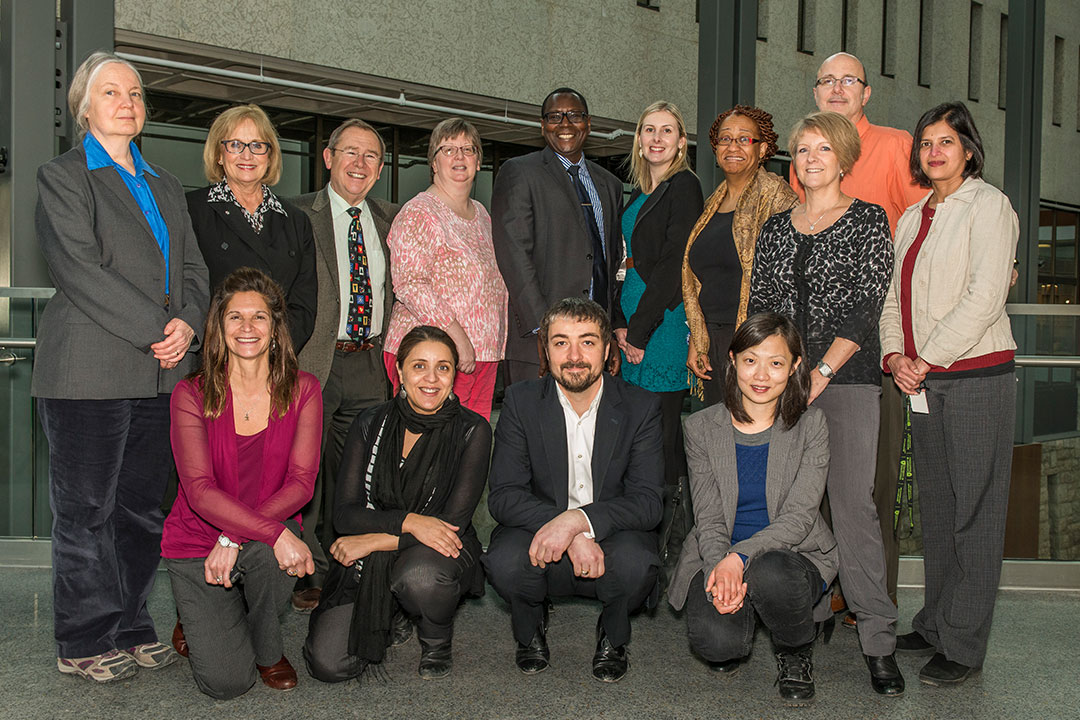
Moving forward: SPH turns 10
The past decade has brought both triumph and tribulation to the School of Public Health (SPH). Now, with a new action plan and a birthday celebration in the works, the school is focusing on the future.
By Cat Bonner
“We’re in a good place right now. We’ve started on a new path of transformation to a specialized school of public health and centre of research excellence,” explained Dr. George Mutwiri, who joined the school in 2009 and has served as interim executive director since July 2015. “We’re rebuilding our reputation, and we intend to make an impact locally and globally.”
An external review in 2015 and subsequent University of Saskatchewan task force analysis recommended that the school develop specific goals and a refreshed vision and mission to achieve the change it needed. The school decided to combine these revised elements in an action plan, which would guide it in its next steps.
The process of creating the plan re-connected the school’s faculty with students, alumni, U of S leaders and community partners when they came together at a consultation session in April 2016. Mutwiri said the response was extremely encouraging.
“I am grateful to those who helped us develop our action plan,” he said. “It was heartening to see that so many people are still invested in the school and believe we have an important part to play in serving our local and international public health communities.”
In addition to new objectives, the plan has refocused the school’s efforts on some original mandates. Rebuilding community relationships, revitalizing research and increasing Indigenous initiatives are top priorities.
The SPH was established as one of three graduate schools at the U of S in 2007, principally to enhance graduate learning at the university, unite diverse health sciences teaching and research under a single interdisciplinary unit, and to provide education and public health solutions via community outreach.
The school’s foundational Master of Public Health (MPH) program has been popular from the outset, and is the first public health program outside Europe to be accredited by European body APHEA (Agency for Public Health Education Accreditation).
In 2016, the school diversified the MPH program by introducing an innovative thesis option, which gives students the opportunity to do research and write a thesis concurrent to completing the professional degree.
The school’s thesis-based programs in biostatistics, epidemiology, and vaccinology and immunotherapeutics, along with a number of special case doctoral programs, have also created unique research opportunities for students and faculty. Together, these programs have helped the school’s student population flourish from 20 to well over 200. To date, close to 400 students have graduated from the SPH.
Turning 10 signifies a new era for the SPH, as it sets its sights on future success. Plans are underway to develop a PhD program in applied public health, and a specialized Indigenous health stream of the MPH program. The school is also planning a celebratory gala event later in the year.
“We are looking forward to bringing people together to mark a decade of achievement,” Mutwiri said. “This is an exciting time to be at the school and we look forward to a very bright future.”
Cat Bonner is the communications officer in the School of Public Health.

